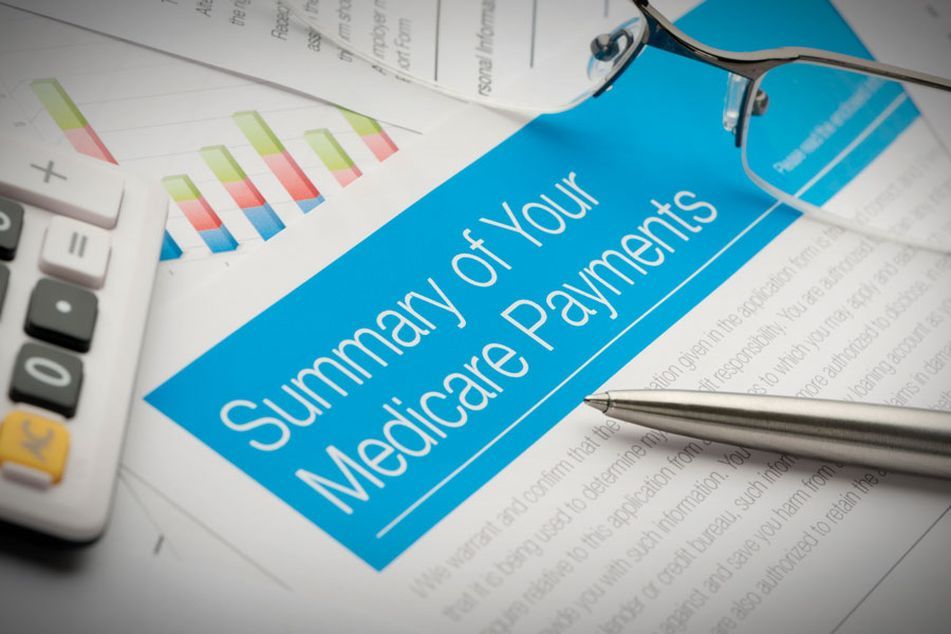IRMAA notification letters outline Medicare costs for 2023

Your clients may be able to appeal an IRMAA surcharge if their income has declined.
In the past, I used to look forward to checking my mailbox between Thanksgiving and Christmas for holiday cards from friends and family, near and far — another one of those traditions that seems to be fading away. These days, the only letter I can count on is the annual notice from the Social Security Administration each November detailing how much my husband and I will each pay for Medicare next year.
Most Medicare beneficiaries will pay the standard Part B premium of $164.90 per month in 2023, down slightly from this year’s monthly premium of $170.10. Medicare Part B covers doctors’ fees and out-patient services. Coupled with a huge 8.7% cost-of-living adjustment in Social Security benefits next year, most retirees will enjoy larger monthly net Social Security benefits after automatic deductions for their Part B premiums in 2023.
But about 8%, or about 5 million, of the nearly 63 million Medicare beneficiaries will pay more than the standard monthly premium for both Part B and Part D prescription drug plans based on their income. My husband and I are among them.
For 2023, single beneficiaries with incomes of $97,000 or more and married couples with joint incomes of $194,000 or more pay a Medicare premium surcharge, officially known as an income-related monthly adjustment amount, or IRMAA. The thresholds increased from $91,000 and $182,000, respectively, in 2022, meaning some beneficiaries may avoid IRMAA surcharges altogether in 2023 or pay less than this year due to the inflation adjustments of the income tiers that trigger those surcharges.
The IRMAA surcharges are based on your latest available tax return from two years ago. For example, 2023 IRMAA surcharges are based on 2021 tax returns filed in 2022. Social Security uses modified adjusted gross income, or MAGI, which includes adjusted gross income plus tax-exempt interest from municipal bonds, to determine income thresholds for IRMAA surcharges.
Surcharges are based on household income, so even if only one spouse is enrolled in Medicare, the monthly costs are based on joint income.
In 2023, surcharges for Medicare Part B range from an extra $65.90 per month to an extra $395.60 per month per person on top of the standard Part B premium of $164.90 per month. The surcharges are triggered by five different income tiers that range from $97,000 to $500,000 for individuals and from $194,000 to $750,000 for married couples filing jointly. The higher the income, the bigger the surcharge.
The same income tiers apply to Part D prescription drug plans, with IRMAA surcharges ranging from an additional $12.20 per month to an additional $76.40 per month per person. Part D premiums can vary widely by plan.
But in some situations, Medicare beneficiaries can appeal an IRMAA surcharge if their income has declined due to a life-changing event, such as marriage, divorce, loss of a spouse, retirement or a reduction in work hours.
One reader, Jim Young, a financial adviser in Irvine, California, would seem to be a poster child for an IRMAA appeal.
“My wife fully retired January 1, 2022, and I have semi-retired on the same date,” Young wrote to me in an email. “Our income has dropped close to $100,000 this year.”
Young said his wife received an IRMAA notification letter that she must pay an additional $65.90 per month for her Part B premium and an extra $12.20 for her Part D premium next year. “Is it worth it for us to contest the surcharge now or do we have to wait until we file our 2022 income tax return?” he asked.
I urged him to appeal the surcharge now. He can do so by filing form SSA-44, Medicare Income-Related Monthly Adjustment Amount-Life-Changing Event, as explained in the IRMAA notification letter, or by calling Social Security at 1-800-772-1213.
Young will need to submit proof of his wife’s retirement and his reduction in work hours, such as letters from their respective employers. In the case of marriage, divorce or the death of a spouse, the appropriate documents will be needed, such as a death certificate, marriage license or divorce decree, as proof of those life-changing events.
SSA can’t make a new IRMAA decision if your income has declined for a reason other than one of the listed life-changing events. For example, if your income declined following a one-time spike in income that was due to capital gains or a Roth IRA conversion, it would not qualify for a life-changing event exception. The added income would increase your Medicare premium for at least a year. If your income subsequently declined, so would your future Medicare premiums.
“If you do appeal, we may start withholding your increased premiums before we make our decision on your appeal,” the IRMAA notification letter explains. “If we change our decision about your IRMAA, we will correct the amount and refund any incorrectly withheld premiums.”
I wished Jim luck and asked him to keep me posted on the outcome of his appeal.
(Questions about new Social Security rules? Find the answers in Mary Beth Franklin’s 2022 ebook at MaximizingSocialSecurityBenefits.com.)
Having a certification earns you respect, Mary Beth Franklin says
Learn more about reprints and licensing for this article.








